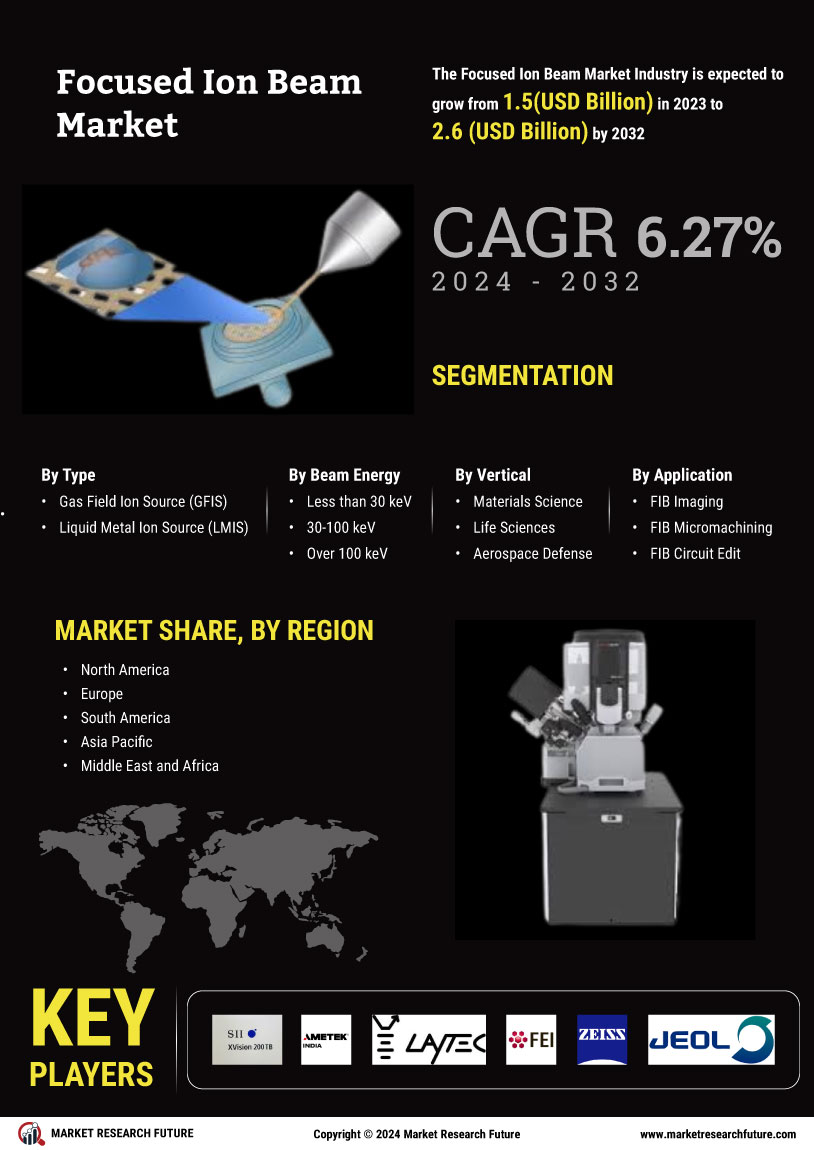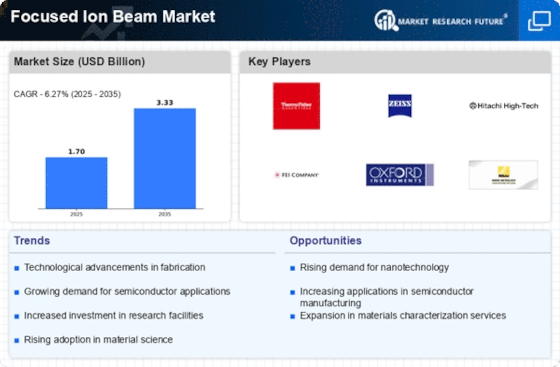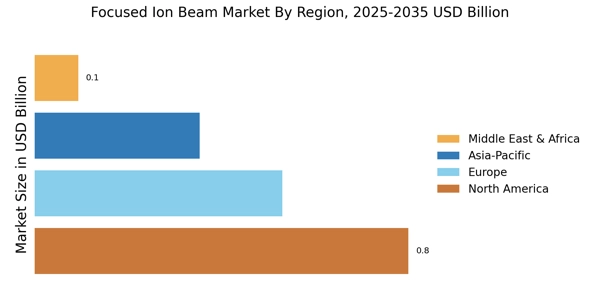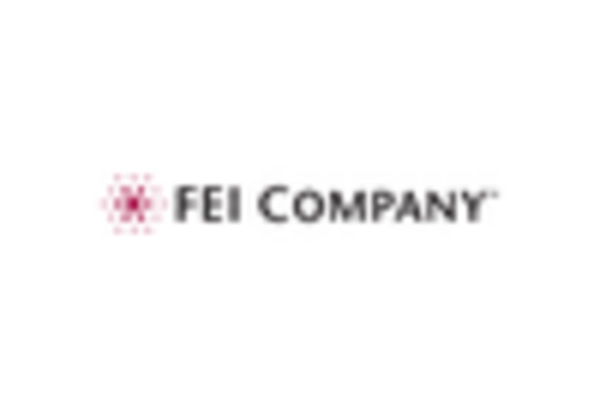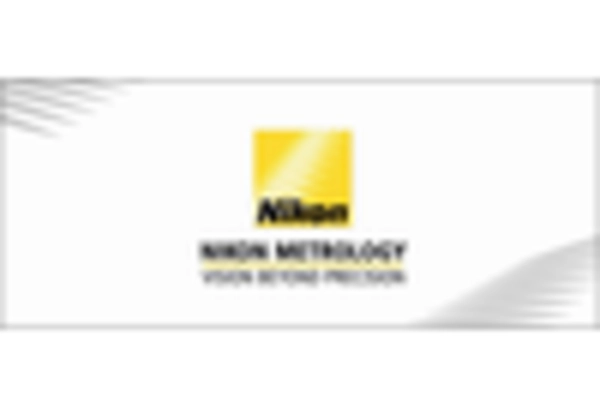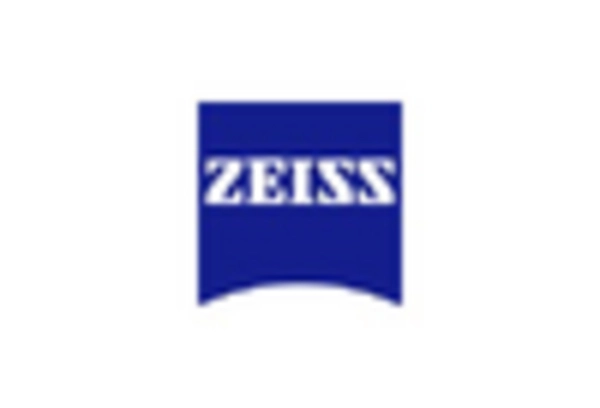Emergence of Advanced Materials
The Focused Ion Beam Market is being shaped by the emergence of advanced materials that require sophisticated fabrication techniques. Materials such as graphene, carbon nanotubes, and various nanocomposites are gaining traction in multiple applications, including electronics, energy storage, and biomedical devices. The unique properties of these materials necessitate precise manipulation and characterization, which focused ion beam technology can provide. As industries increasingly adopt these advanced materials, the demand for focused ion beam systems is likely to rise. Market analysts project that the advanced materials sector will experience substantial growth, potentially exceeding a CAGR of 8% in the coming years. This trend indicates a favorable environment for the Focused Ion Beam Market, as manufacturers seek innovative solutions to harness the potential of these materials.
Growing Focus on Miniaturization
The Focused Ion Beam Market is significantly impacted by the growing focus on miniaturization across various sectors. As devices become smaller and more complex, the need for precise fabrication techniques becomes critical. Focused ion beam technology allows for the creation of nanoscale features, which are essential for modern electronics, medical devices, and telecommunications equipment. The trend towards miniaturization is expected to continue, with market forecasts suggesting that the demand for miniaturized components will grow at a CAGR of around 6% over the next few years. This shift is likely to drive the adoption of focused ion beam systems, as manufacturers seek to meet the stringent requirements of miniaturized designs. Consequently, the Focused Ion Beam Market is poised for growth as it aligns with the broader trend of miniaturization in technology.
Rising Demand for Precision Manufacturing
The Focused Ion Beam Market is experiencing a surge in demand for precision manufacturing techniques. Industries such as aerospace, automotive, and electronics are increasingly relying on focused ion beam technology for its ability to create intricate microstructures and components with high accuracy. This trend is driven by the need for miniaturization and enhanced performance in products. According to recent estimates, the precision manufacturing sector is projected to grow at a compound annual growth rate of over 7% in the coming years, further propelling the Focused Ion Beam Market. As manufacturers seek to improve product quality and reduce waste, the adoption of focused ion beam systems is likely to become more prevalent, indicating a robust growth trajectory for the market.
Expansion of Research and Development Activities
The Focused Ion Beam Market is significantly influenced by the expansion of research and development activities across various sectors. Academic institutions and private research organizations are increasingly utilizing focused ion beam technology for material characterization and fabrication. This trend is particularly evident in fields such as materials science, nanotechnology, and semiconductor research. The investment in R&D is expected to rise, with funding for advanced manufacturing technologies projected to reach billions in the next few years. This influx of resources is likely to enhance the capabilities of focused ion beam systems, making them more accessible and efficient for researchers. Consequently, the growth of R&D activities is anticipated to drive the demand for focused ion beam systems, thereby positively impacting the Focused Ion Beam Market.
Increasing Applications in Semiconductor Fabrication
The Focused Ion Beam Market is witnessing a notable increase in applications within semiconductor fabrication processes. As the semiconductor industry continues to evolve, the need for advanced manufacturing techniques becomes paramount. Focused ion beam technology offers unique advantages, such as the ability to perform precise milling and etching, which are essential for developing next-generation semiconductor devices. Recent data indicates that the semiconductor market is expected to grow at a CAGR of approximately 5% over the next five years, which will likely bolster the demand for focused ion beam systems. This growth is driven by the rising need for high-performance chips in consumer electronics, automotive applications, and telecommunications, suggesting a promising outlook for the Focused Ion Beam Market.
